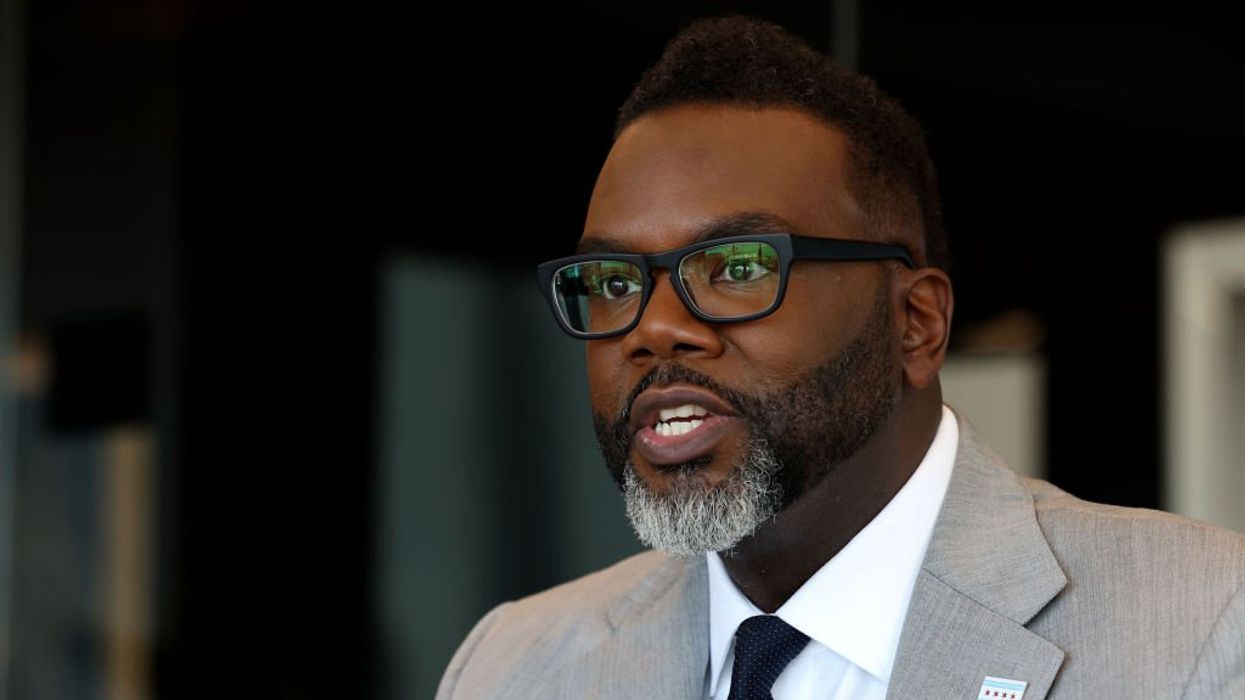
Democratic Chicago Mayor Brandon Johnson (Antonio Perez/Chicago Tribune/Tribune News Service via Getty Images)

Democratic Chicago Mayor Brandon Johnson is exploring opening city-owned grocery stores to address food "inequities," according to a Wednesday press release.
Chicago's newly elected mayor announced a partnership with the progressive national non-profit group Economic Security Project to solve the lack of food access in some city neighborhoods.
"All Chicagoans deserve to live near convenient, affordable, healthy grocery options. We know access to grocery stores is already a challenge for many residents, especially on the South and West sides," said Johnson. "A better, stronger, safer future is one where our youth and our communities have access to the tools and resources they need to thrive. My administration is committed to advancing innovative, whole-of-government approaches to address these inequities. I am proud to work alongside partners to take this step in envisioning what a municipally owned grocery store in Chicago could look like."
According to Johnson's administration, "historic disinvestment" over the past couple of years in Chicago's South and West sides, including the closure of six grocery stores, has caused "inequitable access to food retail." The United States Department of Agriculture reported that 65% of West Englewood residents and 52% of East Garfield Park residents live over half a mile from the nearest grocery retailer.
Johnson claimed, "Food access and security link directly to environmental and racial justice." The mayor believes that exploring "innovative initiatives," such as opening local government-owned grocery stores, will solve food insecurity.
Economic Security Project senior adviser Ameya Pawar praised Johnson for "reimagining the role of government" by exploring city-owned stores. Pawar compared Johnson's proposal to public libraries and the postal service, which he touted as providing "economic choice and power to communities."
"A city-owned grocery store in the South or West side of Chicago would be a viable way to restore access to healthy food in areas that have suffered from historic and systemic disinvestment," Pawar stated.
Johnson's administration noted that grocery retailers act as "anchors in communities" that attract additional businesses. Without nearby grocery stores, residents in Chicago's South and West sides are forced to spend their money outside their local community, the administration stated.
"This contributes to the existing 'retail gap' many South and West side communities face, where millions of dollars in local residents' purchasing power that could have been invested in their community ends up supporting retail stores in other parts of the city. This feasibility study will contribute to the administration's commitment to investing in innovative solutions to address community infrastructure, neighborhood revitalization, and economic vitality," the press release continued.
If Johnson's proposed idea is implemented, Chicago would become the first major city to have a municipally owned grocery store.
The city-owned grocery stores would be funded using economic development grants, according to Johnson's policy chief, Umi Grisby. That grant money could come from state and federal taxes, but not local.
"So we are not spending any taxpayer dollars," Grisby stated. "What we're also going to be able to access is the funding that exists at the national level, at the state level."
Prominent Chicago restaurateur Sam Sánchez pushed back against Johnson's proposal.
"Nobel [sic] intention but not a good idea. This groceries [sic] stores will be operating in the red and loosing [sic] tax payers [sic] money," Sánchez wrote on X, formerly known as Twitter. "Control crime and business will come."
The Chicago Sun-Times reported that the city anticipates a $538 million budget shortfall in 2024. Nearly half of the deficit is allocated to the migrant crisis, an alderperson told the outlet.
Like Blaze News? Bypass the censors, sign up for our newsletters, and get stories like this direct to your inbox. Sign up here!